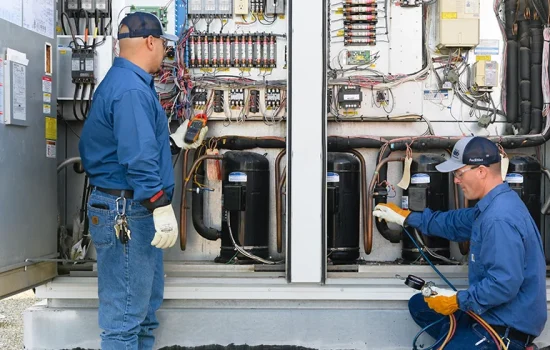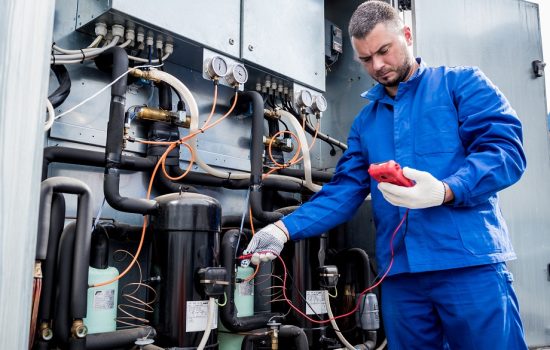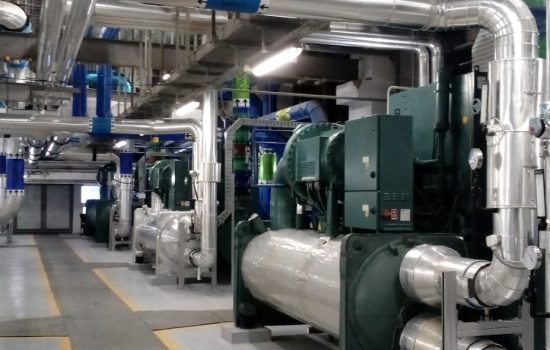HVAC Heating and Cooling Services
Table of Contents
- Introduction to HVAC Services
- Importance of HVAC Systems
- Types of HVAC Services
- 3.1 Installation
- 3.2 Maintenance
- 3.3 Repair
- Benefits of Professional HVAC Services
- Choosing the Right HVAC Service Provider
- Common HVAC Issues and Solutions
- Energy Efficiency in HVAC Systems
- Frequently Asked Questions (FAQs)
- Conclusion
1. Introduction to HVAC Services
HVAC stands for Heating, Ventilation, and Air Conditioning. HVAC services encompass the installation, maintenance, and repair of systems that regulate indoor temperature and air quality. With a properly functioning HVAC system, you can enjoy a comfortable living or working environment throughout the year.
2. Importance of HVAC Systems
HVAC systems play a crucial role in our daily lives. They not only provide warmth in winter and cooling in summer but also improve indoor air quality by filtering out pollutants and allergens. A reliable HVAC system enhances energy efficiency, resulting in lower utility bills and a reduced carbon footprint.
3. Types of HVAC Services
3.1 Installation
The installation of HVAC systems requires expertise and precision. Professional technicians assess the specific needs of your space, considering factors like square footage, insulation, and existing ductwork. A proper installation ensures that the system operates efficiently and lasts longer, minimizing future repair costs.
3.2 Maintenance
Regular maintenance is essential for the longevity of your HVAC system. Scheduled inspections help identify potential issues before they escalate into costly repairs. Maintenance services typically include:
- Filter Replacement: Dirty filters restrict airflow and reduce efficiency.
- Cleaning: Dust and debris can accumulate in components, leading to inefficiency.
- System Checks: Technicians examine the system for any signs of wear and tear.
3.3 Repair
Despite regular maintenance, HVAC systems can encounter issues. Common problems include:
- Thermostat Malfunctions: Inaccurate temperature readings can lead to discomfort.
- Refrigerant Leaks: Low refrigerant levels can severely affect cooling performance.
- Noisy Operation: Unusual sounds may indicate mechanical issues that require immediate attention.
Prompt repairs by qualified technicians ensure your system returns to optimal performance.
4. Benefits of Professional HVAC Services
Opting for professional HVAC services provides numerous advantages:
- Expertise and Training: Certified technicians possess the necessary skills and knowledge to handle complex HVAC systems.
- Safety: HVAC work involves electrical and mechanical components. Professional services ensure compliance with safety standards, minimizing risks.
- Warranty Protection: Many HVAC systems come with warranties that require professional installation and maintenance to remain valid.
5. Choosing the Right HVAC Service Provider
Selecting the right HVAC service provider is crucial for the longevity and efficiency of your system. Consider these factors:
- Experience: Look for companies with a solid track record and years of experience.
- Licensing and Insurance: Verify that the provider has the necessary licenses and insurance for your protection.
- Customer Reviews: Read testimonials and online reviews to gauge customer satisfaction and reliability.
- Service Range: Ensure the provider offers comprehensive services, including installation, maintenance, and repair.
6. Common HVAC Issues and Solutions
Thermostat Problems
A malfunctioning thermostat can disrupt your HVAC system’s efficiency. If your system is not responding to temperature changes, consider recalibrating or replacing the thermostat.
Airflow Issues
Poor airflow can stem from clogged filters, blocked ducts, or malfunctioning fans. Regular maintenance and cleaning can help maintain optimal airflow.
Refrigerant Leaks
Refrigerant leaks not only impact cooling efficiency but can also harm the environment. If you suspect a leak, contact a professional immediately for diagnosis and repair.
Strange Noises
Unusual sounds, such as grinding or hissing, can indicate mechanical failures. It’s important to address these issues quickly to prevent further damage.
7. Energy Efficiency in HVAC Systems
Energy efficiency is a key consideration when it comes to HVAC systems. Upgrading to modern, energy-efficient units can lead to substantial savings on energy bills. Here are some tips for improving efficiency:
- Invest in a Programmable Thermostat: This allows you to set temperatures based on your schedule, reducing energy waste.
- Seal Ducts: Leaky ducts can account for significant energy loss. Sealing them can enhance system efficiency.
- Regular Maintenance: Consistent maintenance keeps your system running efficiently, preventing sudden breakdowns and costly repairs.
8. Frequently Asked Questions (FAQs)
How often should I service my HVAC system?
It’s recommended to schedule maintenance at least once a year. Twice a year is ideal—once before the heating season and once before the cooling season.
What are signs that I need HVAC repairs?
Signs include inconsistent temperatures, strange noises, increased energy bills, and poor airflow. If you notice any of these, it’s time to call a professional.
What is the average lifespan of an HVAC system?
Typically, HVAC systems last between 15 to 25 years, depending on the model and maintenance frequency.
9. Conclusion
Investing in professional HVAC heating and cooling services is essential for ensuring a comfortable and efficient indoor environment. Regular maintenance, timely repairs, and expert installation can save you money and extend the life of your HVAC system. For all your HVAC needs, contact a trusted service provider today and experience the difference.




